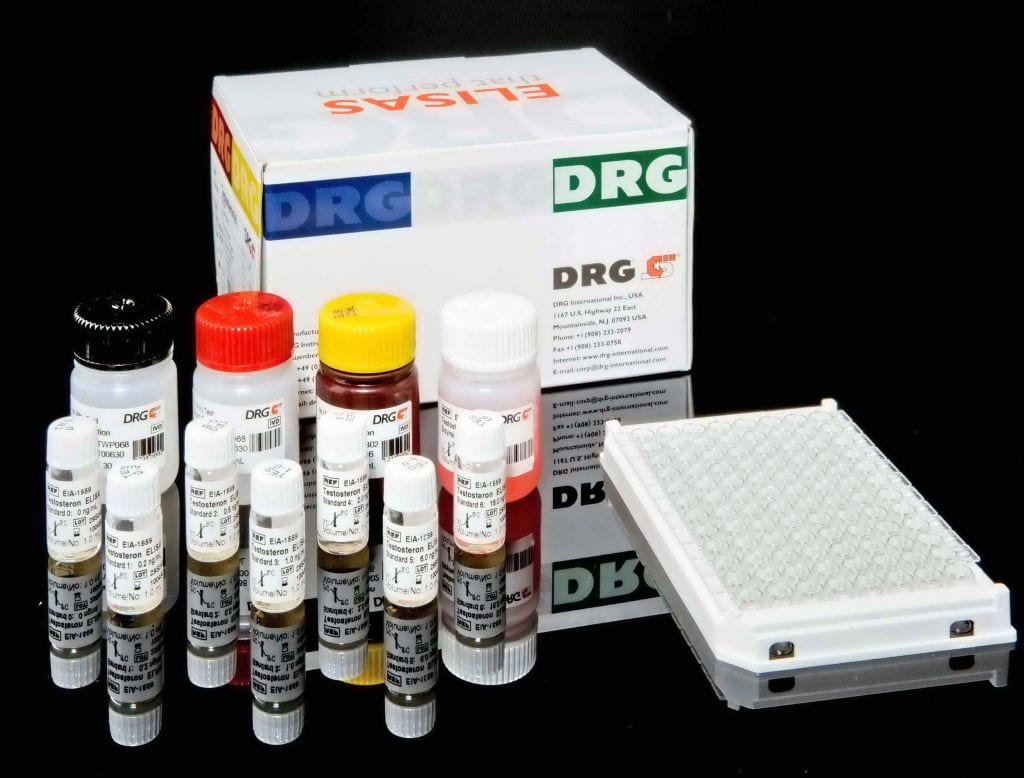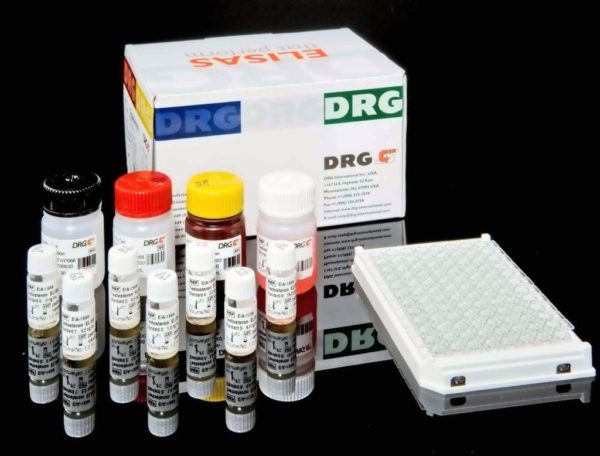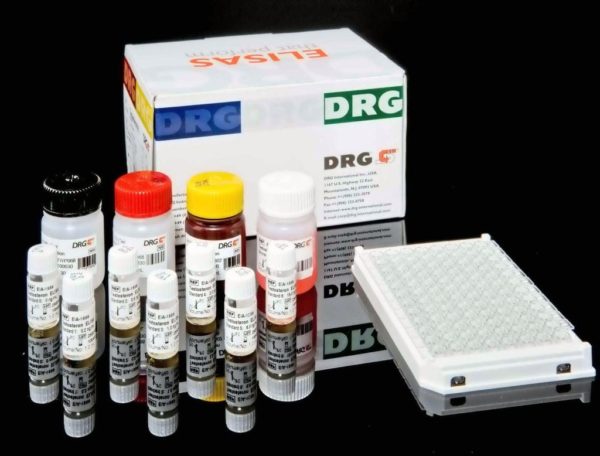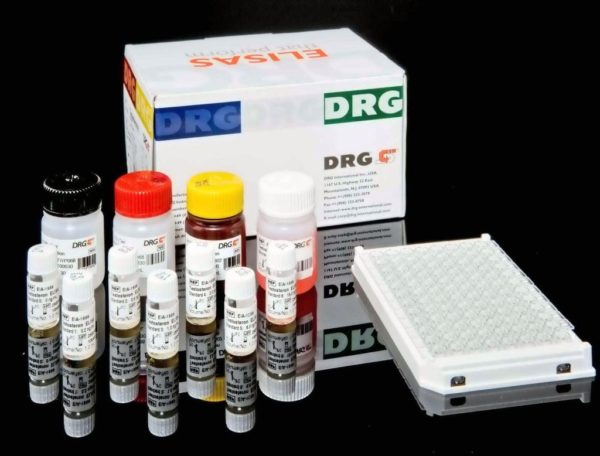Description
Enzyme immunoassay (microtiter strips) for the qualitative and quantitative determination of IgG antibodies against Herpes simplex virus 2 in human serum and plasma.
The Herpes simplex viruses type 1 and 2 are ubiquitous pathogens of humans that usually cause either asymptomatic infection or mild skin and mucosal diseases. HSV 1 causes 85% and HSV 2 15% of oral primary infections. HSV 1 causes different clinical symptoms in about 10% of the primary infections like gingivostomatitis, keratitis, conjunctivitis,
vesicular eruptions of the skin, encephalitis, eczema and some letal infections of newborns. Persons at an increased risk for serious or prolonged HSV infections are those with eczema, severe burns or a defect in their cell-mediated immunity. HSV 2 may cause other symptoms like the Herpes genitalis syndrome occurring principally in adults. The preceding primary infection will be transmitted via sexual contact. HSV 2 is a virus suspected to induce cervix carcinoma in women. In some cases a HSV 2 caused meningitis occurs that is much milder than a HSV 1 caused encephalitis. The most severe complication of genital HSV infection is the neonatal disease. Diagnosis of the primary infection by HSV 1/ HSV 2 can be confirmed by a significant rise of the IgG titer within 6 to 10 days. A finished infection can be monitored with the IgG ELISA. In case of a suspicion of HSV encephalopathy it is recommended to perform a parallel determination of both HSV-specific antibodies (IgG and IgM) in serum and liquor.
Solid phase enzyme-linked immunosorbent assay (ELISA) based on the sandwich principle. The wells are coated with antigen. Specific antibodies of the sample binding to the antigen coated wells are detected by a secondary enzyme conjugated antibody (E-Ab) specific for human IgG. After the substrate reaction the intensity of the color developed is proportional to the amount of IgG-specific antibodies detected. Results of samples can be determined directly using the standard curve.




